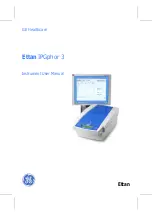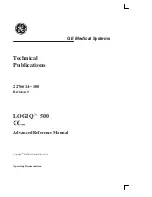
5
Description of Equipment
The Optilight Max is the latest generation of the appliances of photoactivation by LED light. This
short name is the acronym for Light Emitting Diode, a totally different manner of emitting light,
when compared with the conventional appliances of halogen light. As opposed to the traditional
appliances, which generate light in a wide wave spectrum with great heat, this technology allows
a cold light to be emitted, in the precise wavelength for activating the different dental products
to which it applies.
LED technology, recently introduced in Dentistry, has brought countless advantages to the curing
light appliances for direct restorations in composite resin. Besides being infinitely more durable, the
LEDs have made the appliances more compact, ergonomic and easy to install and transport. The
emission of cold light at a precise wavelength ensures the polymerization of composites activated
by the canforoquinone, without risks of dental heating, pulpal injury or discomfort for operator
and patients.
The safety and efficiency of the LEDs, now with high emission power, are available for all the clinical
procedures which require power of light for photoactivation.
The wavelength of 420nm - 500nm associated with the high power emitted by the Optilight Max
makes the multifunctionality of this appliance feasible:
• Direct restoring procedures: composite resins, ionomers and adhesives.
• Indirect restorations: adhesive cementing of laminates, inlays, esthetic pegs and metal-free crowns.
• Activation of photoactivated materials as sealers, surgical cements and lining bases.
Planned and built using cutting-edge technology, to provide results within the specifications
stipulated by the leading world dental authorities.
Endowed with an automatic bivolt switch power supply which allows one to use the equipment at
any power supply voltage between 100 and 240V~ - 50/60Hz.
Digital control in the display on the handpiece itself.
Variance of choice of operating time (5,10,15 and 20 seconds).
It has 3 application modes: Continuous, Ramp and Pulsating:
• Continuous: Maximum and continuous mode of light intensity (same luminosity from start to finish
of the polymerization).
• Ramp: Gradual mode of light intensity; it increases gradually.
• Pulsed: Pulsing mode consisting of cycles which oscillate at a fixed frequency.
Physical Principle used by the Equipment
The physical principle is the emission of a cold light to polymerize photosensitive substances, as the
equipment is endowed with a cold light emitter (LED) with a wavelength between 420 and 500nm (blue
light), which has an ideal intensity for being integrated with the canforoquinone.
Indication of the equipment
This equipment is exclusively for dental use, having to be employed and handled by a capacitated
person (professional duly regulated, as per the local legislation of the country) observing the
instructions contained in this manual.
The user is obliged to only use the equipment in perfect conditions and protect himself/herself,
patients and third parties against possible hazards.
Purpose of the equipment
This equipment is exclusively for dental use, with the objective of polymerizing photosensitive
substances through the emission of blue light.
It was developed to be used in several dental procedures such as: restoring procedures, bonding
braces and activating photoactivated materials as sealers, lining bases.
IDENTIFICATION OF EQUIPMENT






































